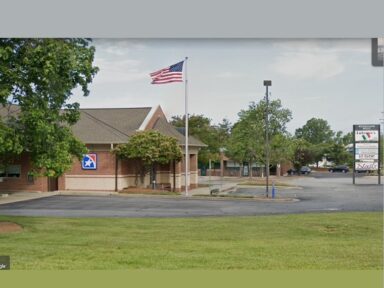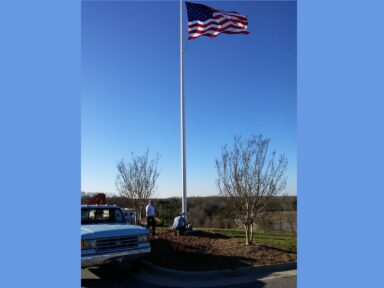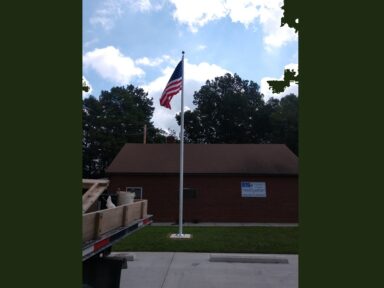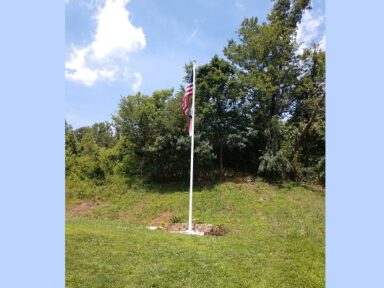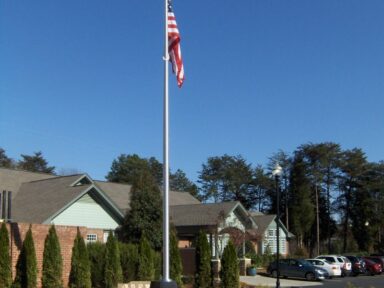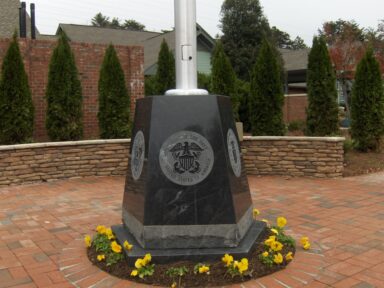FLAGPOLES
The presence of a flagpole holds profound significance, whether on private property, public spaces, or as part of a public memorial. On private property, a flagpole symbolizes patriotism, pride, and a deep connection to one’s country. It becomes a tangible expression of respect for national values and a demonstration of solidarity with the community.
In public spaces, a flagpole serves as a unifying emblem, fostering a sense of shared identity and collective pride. It transforms a location into a symbol of national unity, reminding citizens of their shared heritage and the principles that bind them together. The sight of a flag fluttering in the wind evokes a sense of reverence, inspiring civic responsibility and a commitment to common ideals.
When integrated into a public memorial, a flagpole amplifies the significance of remembrance. The national flag becomes a backdrop to honor the sacrifices of individuals who have served and protected their country. The combination of a flagpole with a public memorial creates a powerful visual statement, underlining the valor and dedication of those being commemorated. It establishes a sacred space where the memory of heroes is intertwined with the enduring symbols of nationhood.
In all contexts, a flagpole stands as a universal symbol of freedom, resilience, and shared values. It invites reflection, inspires unity, and represents a commitment to the principles that define a community or nation. Whether in a backyard or as part of a larger public narrative, a flagpole holds the power to evoke emotions, foster unity, and honor the collective identity that it represents.




